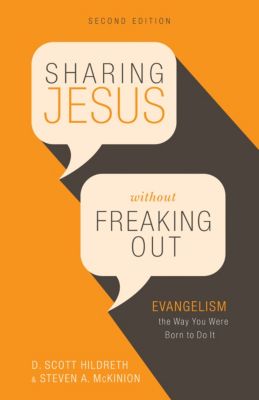
As geographical mobility in our society continues to decline, perhaps it’s time to ask a new question about missions.
By D. Scott Hildreth
Americans are mobile people. At least that is the impression many have of society in the United States. Neighborhoods and apartment complexes pop up almost overnight. TV commercials advertise companies that aid in the process of buying and selling homes and promote lenders who are ready to help navigate complex interest rates and other costs. All of this may lead to the notion that relocation is a common trend among our fellow Americans.
But research shows that simply isn’t true. In fact, except for a temporary bump in mobility during the pandemic shutdown, geographical mobility in the U.S. has been in steady decline for the past several decades. Staying in one place for a long time can be good for community and stability, but as Christ followers, we need to think about how it affects our mission.
“Staying in one place for a long time can be good for community and stability, but as Christ followers, we need to think about how it affects our mission.” — @dshildreth Click To TweetCommissioned to go
We must not neglect the Great Commission’s imperative to go.
While it is grammatically possible to translate the Greek word poreuthentes (the first word of Matthew 28:19) into English as “as you go” or “while you are going,” New Testament scholars are in almost universal agreement that this is not its intended meaning.
New Testament scholar Benjamin Merkle has demonstrated that the best reading of Jesus’s commission in Matthew should understand “going” as integral rather than optional. Though the focus of the commission is on making disciples, we cannot properly obey this command without also going. He notes that the same grammatical construction is used in the Gospel of Matthew in several places:
- In Matthew 2:8, Herod tells the wise men to “go” and search for Jesus so they can worship Him.
- In Matthew 9:13, Jesus tells the Pharisees to “go” and learn what it means that He desires mercy, not sacrifice.
- In Matthew 17:27, Jesus tells Peter to “go” cast a hook and catch a fish to pay taxes.
- Then also, in Matthew 28:7, the angel instructs the women at the empty tomb to “go” and tell the disciples Jesus has risen from the dead.
In each of these instances, as in the Great Commission, the command to “go” is a necessary element for fulfilling the basic command. Merkle concludes: “So, while we acknowledge that the participle πορευθέντες (poreuthentes) is not the main verb (and thus not the main command) in the Great Commission, without doubt it carries an imperatival force (“Go!”). Consequently, the church is given a command to go to the nations in order to make disciples.”
Reaching the unreached
Statistically speaking, Christians make up about one-third of the world’s population. So in theory, each Christian would only need to share Christ with two other people to evangelize the entire world. However, this doesn’t take into consideration that Christians are not equally distributed throughout the world.
Large parts of our globe have few Christians living there. The International Mission Board tells us nearly 5 billion people live with limited access to a Christian witness. They cannot hear or believe unless someone goes to them. They will live and die without ever having the opportunity to believe.
Nearly 5 billion people live with limited access to a Christian witness, according the @IMB_SBC. Click To TweetPlanted with purpose
If you stay, ask yourself why and stay with a purpose.
The Bible never implies every believer should leave home and serve as an international missionary. However, the Bible is clear that our calling is to be making disciples of all nations. So, in a society less comfortable with geographical mobility, if we are part of the population that isn’t actively going, why are we staying?
It is indeed possible to prioritize God’s mission without being on the move. Here are just a few examples:
We can find pockets of unreached people and work to take the gospel to them. For example: refugees, university students, those living on social fringes, or perhaps even in our own neighborhoods.
“Those of us who are where Christ has already been preached must ask ‘Lord, why should I stay?’ rather than the question we so often ask: ‘Lord, why should I go?’” — @dshildreth Click To TweetWe can use our stability to support missionaries and mission-sending agencies. This may come in the form of financial support, support when missionaries return for a stateside assignment or furlough, or support through prayer and other tangible reminders they have not been forgotten.
We can work to make God’s mission a priority for our local church. We can do this by giving, sending short-term missionary teams, and raising up missionaries from within our congregations.
Our participation in God’s mission is not optional. As geographical mobility in our society continues to decline, perhaps it’s time to ask a new question about missions. Those of us who are where Christ has already been preached must ask “Lord, why should I stay?” rather than the question we so often ask: “Lord, why should I go?”
For permission to republish this article, contact Marissa Postell Sullivan.

D. Scott Hildreth
Scott serves as Associate Professor of Missiology at Southeastern Baptist Theological Seminary. He is the author of Together on God’s Mission and the co-author of Sharing Jesus Without Freaking Out. Both books are published by B&H Academic.












